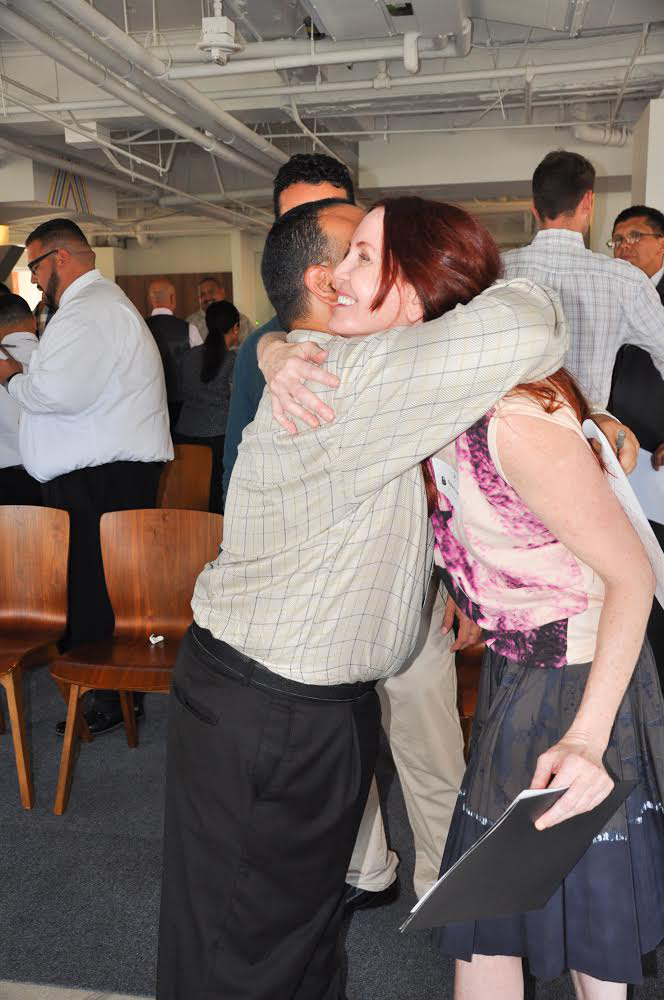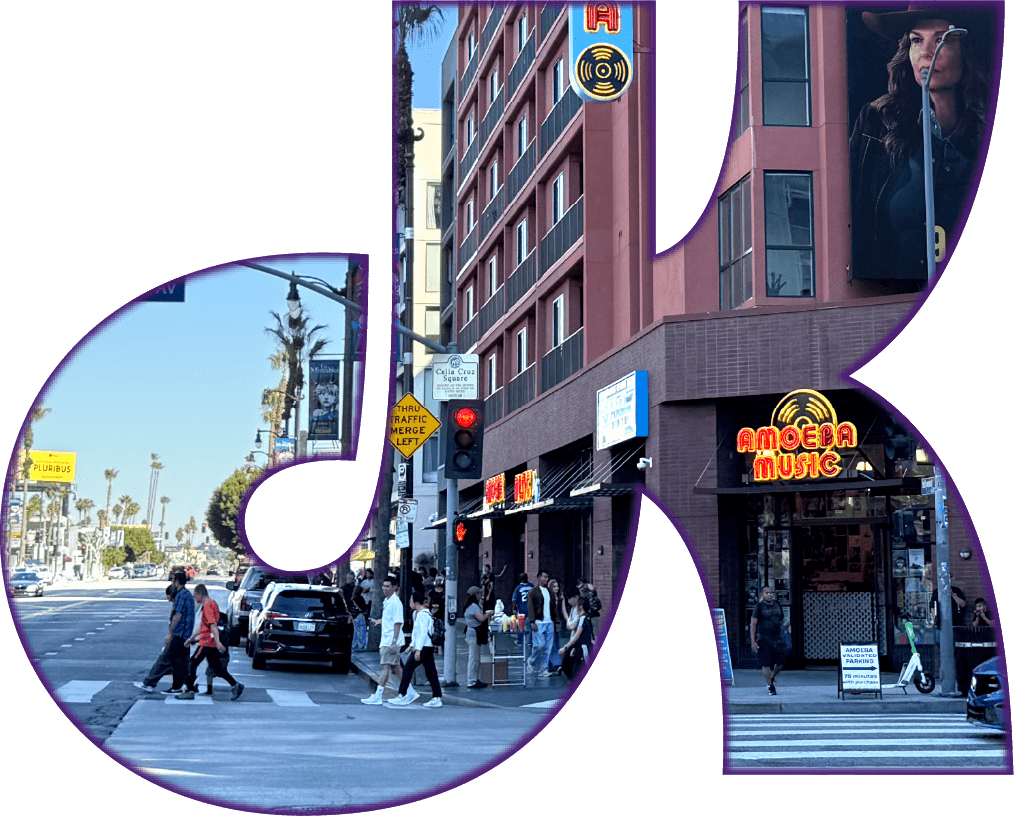Small business owner. Foster mom. Renter. Nonprofit founder. Decades in the district.
Investing in a Council District 13 that works for everyone: clean streets; supported small businesses; and building better, faster, neighborhood-centered housing.
Every dollar strengthens the iconic neighborhoods of CD13 & the future of Los Angeles.
Contribute Online in Any Amount Below:
Prefer to mail a check?
MEET DYLAN
Campaigns should be a conversation, not a billboard.
On Instagram you’ll find regular posts on policy and neighborhood issues, on TikTok you’ll get more of my story and day-to-day campaign life, and on YouTube you’ll see longer, in-depth videos as the race moves forward.
“Improving our quality of life starts with rebuilding our small business economy; keeping our parks and public spaces both safe and clean; planting trees for shade; and celebrating the art, music, creativity and cultural diversity that defines Council District 13.”
Dylan Kendall moved to Hollywood in 1992 and took a job bartending at the Gaslight, an unmarked club tucked in an alley off Ivar and Selma that drew a mix of locals, hipsters, and celebrities. For nearly a decade, she poured drinks at night and worked as a ceramist during the day, building a life in the heart of a neighborhood that was creative, chaotic, and full of possibility.
At 29, Dylan enrolled at UCLA, earning her bachelor’s and master’s degrees in her early thirties. She later completed the CORO Public Affairs Fellowship, where she gained a deeper understanding of civic systems and community leadership. Her brother teaches at Los Angeles City College, in the district, where her nephews have also been students, a reminder that education takes many forms and serves every corner of the CD13 community.
In the mid 2000s, Dylan founded Hollywood Arts, an educational agency that uses arts education to disrupt chronic homelessness in young adults, helping them develop self-worth, motivation, and the skills needed to find and keep employment and build stable, independent lives.
When her grandson was born to her foster son, Dylan launched Dylan Kendall Home, transforming it from a table at the Hollywood Farmers’ Market into a global home design brand recognized for its joyful, purpose-driven work.
Later, at the Hollywood Chamber of Commerce, Dylan helped protect two of Los Angeles’ most iconic symbols, the Hollywood Sign and the Walk of Fame, while championing small businesses, creative workers, and neighborhood revitalization.
A longtime vegan, and animal rescuer, Dylan has dedicated her life to compassion in action, from advocating for sustainability to rescuing cats and dogs across Los Angeles. She now shares the same entrepreneurial skills she learned on the fly by coaching incarcerated men and women with Defy Ventures, helping them create their own new opportunities when they come home.
Subscribe to the newsletter
stay informed, get involved, and help shape the future of CD13
Pride in Public Space
Our public spaces matter more than ever. As we rediscover the value of in-person connection, these shared spaces become our community’s “third place”—where we gather beyond home and work, see our neighbors face-to-face, and rebuild a sense of belonging. In a world returning to real-life connection, vibrant public spaces are the heart of a healthy, united community.
From keeping our neighborhood farmers markets supported, to hosting street fairs, festivals, and local performances, every block in CD13 should feel safe, cared for, and welcoming — for the people who live here and for those who come to experience Los Angeles.
Revitalizing our neighborhoods means reimagining our streets as shared, walkable spaces designed for connection. Monthly pop-up plazas, local art installations, and permanent market furniture can make it easier for our artists, vendors, and small businesses to thrive. Clean, organized, and well-lit sidewalks remind us that pride in place starts at street level.
By working with residents, civic partners, and neighborhood organizations, we can restore beauty, belonging, and pride to every corner of our district.
Public Safety for All
Public safety is not about political sides—it’s personal. As a mother whose son has struggled with the law, and as a coach who’s spent the last eight years working inside prisons, I’ve seen up close how safety, justice, and prevention aren’t just buzzwords—they shape real lives, families, and neighborhoods.
Public concern in Los Angeles is still high, even as some statistics improve. We know that feeling safe goes deeper than numbers; it’s about restoring hope, holding systems accountable, and making sure every neighbor is supported in moments of crisis and in the journey to rebuild.
That’s why my approach puts prevention first: clean, well-lit streets, faster and more compassionate crisis response, and real transparency and accountability from every city department. Safety means giving every person the chance to live, work, and walk without fear—and it means seeing the full humanity in everyone we serve.
Supporting Small Businesses in a Fair Local Economy
Small businesses are the soul of our neighborhoods—the corner markets, cafes, and creative studios that make every block unique. They’re not just shops; they’re job creators, community builders, and a lifeline for families striving to get ahead.
But right now, L.A. is seeing the lowest number of new small businesses opening in at least twenty years. Recent city data shows business formation has dropped to historic lows, even below what we saw during the 2008 recession and the pandemic era.
It’s harder than ever to run a business in Los Angeles, and we need real change. My economic plan is simple: keep more dollars circulating in our community. That means supporting local hiring, helping business owners modernize storefronts, and working hand-in-hand with chambers of commerce and BIDs to give small businesses a real chance to thrive.
Economic Growth and Responsible Budgeting
Los Angeles is at a turning point. We’re wrestling with record deficits, escalating costs, and shrinking returns—this year’s budget shortfall tops a billion dollars, the city’s largest in decades. Solutions won’t happen overnight, but smarter management starts now.
Transparency and accountability are non-negotiable. That means using real-time data to track every dollar, streamlining contracts to eliminate waste, and publicly measuring outcomes—not just activity.
Economic growth is built through partnership: when residents, businesses, and developers align on priorities like tourism, tech, and the creative economy, we strengthen our tax base and expand opportunity. Responsible budgeting isn’t just about saving money—it’s how we rebuild public trust and deliver the results that Angelenos deserve.
Balanced Solutions for Homelessness That Work
LA’s homeless response is a disaster. There has been almost no progress in the 20 years since I launched Hollywood Arts in 2005. At that time, Mayor Villaraigosa was quoted in The New York Times calling Los Angeles the homeless capital of America. Two decades and billions of dollars later, we’re still struggling to get the basics right. We can’t keep repeating the same failed strategies and expect different results.
Homelessness is not one problem; it’s complicated, multifaceted, and different for every person caught in it. We cannot treat everyone with a cookie-cutter approach, pushing people into the same system and expecting lasting change. In my work founding Hollywood Arts in 2005—the only educational agency in the country to use arts-based pedagogy to disrupt the path to chronic homelessness for high-risk young adults over the age of 18 leaving the street, foster care, trafficking, or the juvenile justice system—we learned that listening, adapting, and building solutions with people at the center leads to real lasting progress for those most vulnerable.
And now, 20 years later, recent court orders and quarterly reports show Los Angeles can’t reliably count how many people are being sheltered, placed, or helped. The city has failed to meet core transparency standards and continues to rely on approaches that aren’t helping.
It’s time to bring in leadership with real-world problem-solving experience and the courage to break from what isn’t working. It’s time to think innovatively and with compassion, because no one in L.A. should be living on the street.
Grow Hollywood is my blueprint to revitalize Hollywood — turning empty storefronts into opportunity, supporting local businesses, and preparing our neighborhood for the Olympics, when all eyes will look to be inspired by this great place once again.
Grow Hollywood draws on proven strategies from cities around the world that have rebuilt themselves into creative capitals — to make our streets cleaner and safer, to bring investment and life back to Hollywood, and to finally deliver the world-class experience this neighborhood deserves.




